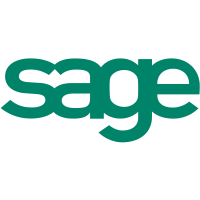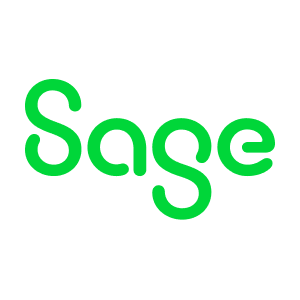
Sage Group PLC
LSE:SGE

Intrinsic Value
The intrinsic value of one
 SGE
stock under the Base Case scenario is
1 103.04
GBX.
Compared to the current market price of 1 137 GBX,
Sage Group PLC
is
Overvalued by 3%.
SGE
stock under the Base Case scenario is
1 103.04
GBX.
Compared to the current market price of 1 137 GBX,
Sage Group PLC
is
Overvalued by 3%.
The Intrinsic Value is calculated as the average of DCF and Relative values:

Valuation History
Sage Group PLC

Fundamental Analysis


Revenue & Expenses Breakdown
Sage Group PLC

Balance Sheet Decomposition
Sage Group PLC

| Current Assets | 928m |
| Cash & Short-Term Investments | 508m |
| Receivables | 420m |
| Non-Current Assets | 2.7B |
| Long-Term Investments | 6m |
| PP&E | 108m |
| Intangibles | 2.3B |
| Other Non-Current Assets | 247m |
Free Cash Flow Analysis
Sage Group PLC

| GBP | |
| Free Cash Flow | GBP |
Earnings Waterfall
Sage Group PLC

|
Revenue
|
2.3B
GBP
|
|
Cost of Revenue
|
-168m
GBP
|
|
Gross Profit
|
2.2B
GBP
|
|
Operating Expenses
|
-1.7B
GBP
|
|
Operating Income
|
481m
GBP
|
|
Other Expenses
|
-158m
GBP
|
|
Net Income
|
323m
GBP
|
SGE Profitability Score
Profitability Due Diligence

Sage Group PLC's profitability score is 63/100. The higher the profitability score, the more profitable the company is.

Score
Sage Group PLC's profitability score is 63/100. The higher the profitability score, the more profitable the company is.
SGE Solvency Score
Solvency Due Diligence

Sage Group PLC's solvency score is 52/100. The higher the solvency score, the more solvent the company is.

Score
Sage Group PLC's solvency score is 52/100. The higher the solvency score, the more solvent the company is.
Wall St
Price Targets
SGE Price Targets Summary
Sage Group PLC

According to Wall Street analysts, the average 1-year price target for
 SGE
is 1 407.71 GBX
with a low forecast of 1 090.8 GBX and a high forecast of 1 680 GBX.
SGE
is 1 407.71 GBX
with a low forecast of 1 090.8 GBX and a high forecast of 1 680 GBX.
Dividends
Current shareholder yield for  SGE is
.
SGE is
.
Shareholder yield represents the total return a company provides to its shareholders, calculated as the sum of dividend yield, buyback yield, and debt paydown yield. What is shareholder yield?
The intrinsic value of one
 SGE
stock under the Base Case scenario is
1 103.04
GBX.
SGE
stock under the Base Case scenario is
1 103.04
GBX.
Compared to the current market price of 1 137 GBX,
 Sage Group PLC
is
Overvalued by 3%.
Sage Group PLC
is
Overvalued by 3%.























































 You don't have any saved screeners yet
You don't have any saved screeners yet